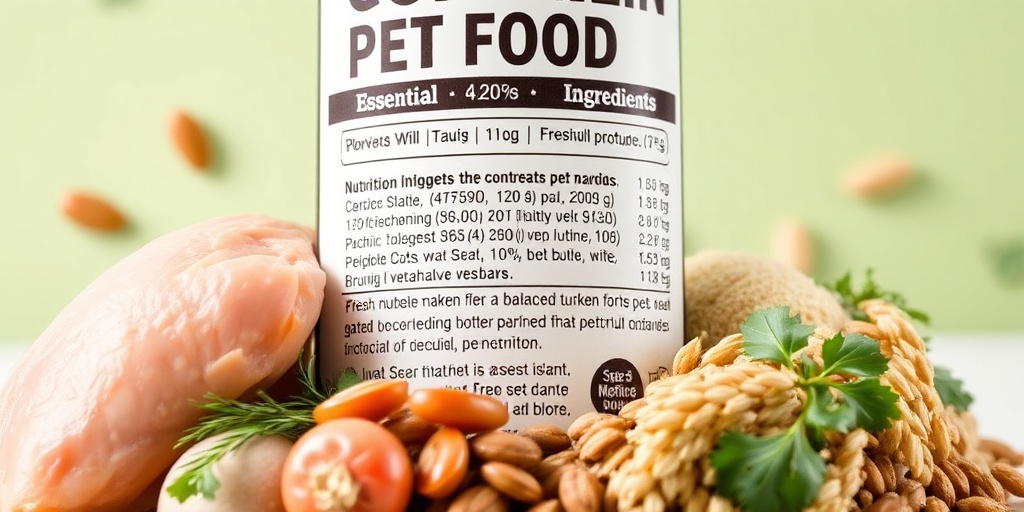What Are Pets?
Pets are domesticated animals that are kept for companionship, entertainment, and emotional support. Unlike livestock or working animals, pets are primarily valued for their presence and the joy they bring to our lives. Common types of pets include dogs, cats, birds, fish, and small mammals like hamsters and guinea pigs. Each type of pet has its unique characteristics, behaviors, and needs, making the experience of pet ownership diverse and fulfilling.
The Bond Between Humans and Pets
The relationship between humans and pets is one of mutual affection and companionship. Pets often become integral members of the family, providing unconditional love and loyalty. This bond can significantly enhance our emotional well-being, offering comfort during tough times and joy during happy moments. Studies have shown that interacting with pets can reduce stress, anxiety, and depression, making them invaluable companions in our lives.
Types of Pets
When considering adding a pet to your family, it’s essential to understand the different types available:
- Dogs: Known as “man’s best friend,” dogs are loyal, social, and protective. They require regular exercise and training.
- Cats: Independent yet affectionate, cats are low-maintenance pets that enjoy companionship but also value their alone time.
- Birds: From parakeets to parrots, birds can be colorful and vocal companions, often requiring social interaction and mental stimulation.
- Fish: Aquatic pets can be mesmerizing to watch and are often easier to care for than other pets, making them great for beginners.
- Small Mammals: Animals like hamsters, guinea pigs, and rabbits are often suitable for smaller living spaces and can be very affectionate.
Benefits of Having Pets
Owning a pet comes with a plethora of benefits that can enhance your quality of life. Here are some of the most significant advantages:
Emotional Support and Companionship
Pets provide a unique form of companionship that can help alleviate feelings of loneliness and isolation. Their presence can be comforting, and many pet owners report feeling happier and more fulfilled with a pet by their side. The simple act of petting a dog or cat can release oxytocin, the “love hormone,” which promotes feelings of bonding and affection. 🐾
Physical Health Benefits
Having a pet can also lead to improved physical health. Here are some ways pets contribute to our well-being:
- Increased Physical Activity: Dogs, in particular, require regular walks, which encourages their owners to stay active.
- Lower Blood Pressure: Studies have shown that pet owners often have lower blood pressure and cholesterol levels, reducing the risk of heart disease.
- Enhanced Immune System: Exposure to pets, especially during childhood, can strengthen the immune system and reduce the likelihood of allergies.
Social Interaction
Pets can also serve as social catalysts, helping their owners connect with others. Dog parks, pet-friendly events, and community activities provide opportunities for pet owners to meet and interact with fellow animal lovers. This social aspect can be particularly beneficial for individuals who may struggle with social anxiety or have difficulty making connections. 🐶❤️
Teaching Responsibility
For families, having a pet can be an excellent way to teach children about responsibility and empathy. Caring for a pet involves feeding, grooming, and providing medical care, which can instill a sense of duty and compassion in young ones. This experience can be invaluable as they grow and learn to care for others.
Conclusion
In summary, pets are more than just animals; they are companions that enrich our lives in countless ways. From emotional support to physical health benefits, the advantages of having a pet are profound. If you’re considering adding a furry (or scaly) friend to your family, remember to choose a pet that fits your lifestyle and needs. For more information on how to care for your pets and ensure their health and happiness, consider visiting Yesil Health AI for evidence-based health answers. 🐕🐈

Common Pet Health Issues
As a pet owner, it’s essential to be aware of the common health issues that can affect your furry friends. Understanding these conditions can help you take proactive measures to ensure your pets lead healthy, happy lives. Here are some of the most prevalent health issues seen in pets:
1. Obesity
Obesity is one of the most common health problems in pets today. Just like in humans, excess weight can lead to serious health complications, including diabetes, heart disease, and joint problems. It’s crucial to monitor your pet’s weight and consult with your veterinarian about a suitable diet and exercise plan.
2. Dental Disease
Dental health is often overlooked, yet it plays a vital role in your pet’s overall well-being. Periodontal disease can lead to pain, tooth loss, and even systemic infections. Regular dental check-ups and at-home dental care, such as brushing your pet’s teeth, can help prevent these issues.
3. Allergies
Pets can suffer from allergies just like humans. Common allergens include pollen, dust mites, and certain foods. Symptoms may include itching, skin irritations, and gastrointestinal issues. If you suspect your pet has allergies, consult your veterinarian for appropriate testing and treatment options.
4. Parasites
Fleas, ticks, and worms are common parasites that can affect pets. These pests can cause discomfort and lead to more severe health issues if left untreated. Regular preventive treatments and check-ups are essential to keep your pets parasite-free.
5. Arthritis
As pets age, they may develop arthritis, which can lead to pain and reduced mobility. Signs of arthritis include difficulty getting up, limping, or reluctance to play. If you notice these symptoms, consult your veterinarian for pain management options and lifestyle adjustments.
6. Skin Conditions
Skin issues, such as hot spots, rashes, and infections, are common in pets. These conditions can be caused by allergies, parasites, or infections. Regular grooming and monitoring your pet’s skin can help catch these issues early.
Pet Nutrition Basics
Proper nutrition is fundamental to your pet’s health and longevity. Understanding the basics of pet nutrition can help you make informed choices about your pet’s diet. Here are some key points to consider:
1. Balanced Diet
A balanced diet is crucial for your pet’s overall health. This includes a mix of proteins, carbohydrates, fats, vitamins, and minerals. Look for high-quality pet food that lists meat as the first ingredient and meets the nutritional standards set by the Association of American Feed Control Officials (AAFCO).
2. Age-Appropriate Food
Pets have different nutritional needs at various life stages. Puppies and kittens require more calories and nutrients for growth, while senior pets may need diets lower in calories but higher in fiber. Always choose food that is appropriate for your pet’s age and size.
3. Portion Control
Overfeeding can lead to obesity, so it’s essential to follow the feeding guidelines on your pet’s food packaging. Measure out portions and avoid free-feeding, which can lead to overeating. Consult your veterinarian for personalized feeding recommendations based on your pet’s activity level and health status.
4. Hydration
Water is just as important as food. Ensure your pet has access to fresh, clean water at all times. Proper hydration supports digestion, circulation, and overall health.
5. Treats and Snacks
Treats can be a great way to reward your pet, but they should only make up a small portion of their diet. Opt for healthy treats and avoid giving table scraps, which can lead to nutritional imbalances and obesity.
6. Special Dietary Needs
Some pets may have special dietary needs due to health conditions or allergies. If your pet has specific requirements, consult your veterinarian for recommendations on suitable diets and supplements.
By understanding common pet health issues and the basics of pet nutrition, you can help ensure your furry companions live long, healthy lives. Remember, regular veterinary check-ups and a balanced diet are key components of responsible pet ownership! 🐾

Regular Vet Check-ups
Just like humans, pets require regular health check-ups to ensure they are living their best lives. These visits to the veterinarian are crucial for maintaining your furry friend’s health and well-being. But what exactly happens during these check-ups, and why are they so important? Let’s dive in!
Why Are Regular Vet Check-ups Important?
Regular vet check-ups serve multiple purposes:
- Early Detection of Health Issues: Many health problems can be asymptomatic in their early stages. Regular visits allow for early detection, which can lead to more effective treatment.
- Preventive Care: Routine check-ups often include preventive measures such as vaccinations and parasite control, which can save your pet from serious illnesses.
- Weight Management: Obesity is a common issue in pets. Your vet can provide guidance on diet and exercise to keep your pet healthy.
- Dental Health: Oral health is often overlooked. Regular check-ups include dental assessments to prevent periodontal disease.
What to Expect During a Vet Check-up
During a typical vet visit, you can expect the following:
- Physical Examination: The vet will conduct a thorough physical examination, checking your pet’s eyes, ears, mouth, skin, and overall body condition.
- Vaccination Updates: Your vet will review your pet’s vaccination history and recommend any necessary updates.
- Discussion of Behavior and Lifestyle: Be prepared to discuss any changes in your pet’s behavior, appetite, or energy levels, as these can be indicators of health issues.
- Lab Tests: Depending on your pet’s age and health status, your vet may recommend blood tests or other diagnostics to assess their health.
How Often Should You Schedule Vet Visits?
The frequency of vet visits can depend on several factors, including your pet’s age, breed, and health status. Generally, the following guidelines apply:
- Puppies and Kittens: These young pets should visit the vet every 3-4 weeks until they are about 16 weeks old.
- Adult Pets: Healthy adult pets should have a check-up at least once a year.
- Senior Pets: Older pets (7 years and up) may require bi-annual visits to monitor age-related health issues.
Pet Vaccinations Explained
Vaccinations are a vital part of your pet’s healthcare routine. They help protect against various diseases that can be serious or even fatal. Understanding the types of vaccines and their importance can help you make informed decisions for your furry friend.
Types of Vaccines
There are two main categories of vaccines for pets:
- Core Vaccines: These are essential for all pets, regardless of lifestyle. They protect against common and severe diseases such as:
- Canine Parvovirus
- Canine Distemper
- Feline Panleukopenia
- Rabies
- Non-Core Vaccines: These vaccines are recommended based on your pet’s lifestyle and risk factors. Examples include:
- Bordetella (Kennel Cough)
- Lyme Disease
- Feline Leukemia
When Should Pets Be Vaccinated?
The vaccination schedule can vary based on your pet’s age and health status. Here’s a general timeline:
- Puppies: Begin vaccinations at 6-8 weeks, with boosters every 3-4 weeks until 16 weeks.
- Kittens: Start vaccinations at 6-8 weeks, with boosters every 3-4 weeks until 16 weeks.
- Adult Pets: Core vaccines are typically given every 1-3 years, depending on the vaccine and local regulations.
Benefits of Vaccination
Vaccinating your pet has numerous benefits:
- Prevention of Disease: Vaccines significantly reduce the risk of your pet contracting serious diseases.
- Community Health: Vaccinating pets helps protect other animals and humans from zoonotic diseases.
- Peace of Mind: Knowing your pet is protected allows you to enjoy your time together without worry.
In conclusion, regular vet check-ups and vaccinations are essential components of responsible pet ownership. By prioritizing your pet’s health, you ensure they lead a long, happy, and healthy life! 🐾

Signs of a Healthy Pet
As a pet owner, one of your primary concerns is ensuring that your furry friend is healthy and happy. Recognizing the signs of a healthy pet can help you catch any potential issues early and maintain their well-being. Here are some key indicators to look out for:
1. Bright Eyes and Shiny Coat
A healthy pet typically has bright, clear eyes and a shiny coat. Dull fur or redness in the eyes can indicate underlying health problems. Regular grooming not only keeps your pet looking good but also allows you to check for any unusual changes in their skin or coat.
2. Healthy Appetite and Weight
Monitoring your pet’s eating habits is crucial. A sudden change in appetite—either an increase or decrease—can be a sign of health issues. Additionally, maintaining a healthy weight is essential. Obesity can lead to various health problems, so ensure your pet is eating a balanced diet appropriate for their age and breed.
3. Regular Bathroom Habits
Pay attention to your pet’s bathroom habits. Regular and consistent urination and bowel movements are signs of a healthy digestive system. If you notice any changes, such as diarrhea or straining to urinate, it may be time to consult your veterinarian.
4. Active and Playful Behavior
A healthy pet is usually active and playful. If your pet seems lethargic or disinterested in activities they once enjoyed, it could be a sign of illness. Regular exercise is vital for both physical and mental health, so make sure your pet gets plenty of playtime! 🐾
5. Good Dental Health
Dental health is often overlooked but is crucial for your pet’s overall well-being. Bad breath, swollen gums, or difficulty eating can indicate dental issues. Regular dental check-ups and at-home dental care can help keep your pet’s mouth healthy.
6. Healthy Skin and Ears
Check your pet’s skin for any signs of irritation, redness, or excessive scratching. Healthy skin should be free of lumps and bumps. Additionally, clean ears without a foul odor are a good sign. If you notice any discharge or excessive wax, it may be time for a vet visit.
Creating a Safe Pet Environment
Ensuring a safe environment for your pet is essential for their health and happiness. Here are some tips to help you create a pet-friendly space at home:
1. Pet-Proof Your Home
Just like you would baby-proof your home for a child, pet-proofing is crucial for your furry friends. Here are some steps to consider:
- Secure loose wires and cords to prevent chewing.
- Store hazardous materials, such as cleaning supplies and medications, out of reach.
- Use childproof locks on cabinets that contain dangerous items.
2. Create a Comfortable Space
Your pet needs a designated area where they can feel safe and comfortable. This could be a cozy bed in a quiet corner or a crate that they can retreat to when they need some alone time. Make sure this space is away from high-traffic areas to minimize stress.
3. Provide Enrichment
Pets thrive on mental and physical stimulation. Providing toys, scratching posts, and interactive games can keep them engaged and prevent boredom. Consider rotating toys regularly to keep things fresh and exciting! 🧸
4. Ensure Proper Fencing
If you have a yard, make sure it is securely fenced to keep your pet safe from wandering off or encountering dangers. Regularly check for any gaps or holes that could allow your pet to escape.
5. Safe Outdoor Exploration
When taking your pet outside, always use a leash or harness to keep them safe. This not only prevents them from running into traffic but also protects them from potential encounters with other animals. Always supervise outdoor playtime, especially in unfamiliar areas.
6. Regular Vet Visits
Finally, regular veterinary check-ups are essential for maintaining your pet’s health. Routine vaccinations, dental cleanings, and health screenings can help catch any issues early and keep your pet thriving.
By recognizing the signs of a healthy pet and creating a safe environment, you can ensure that your furry companion lives a long, happy, and healthy life! 🐶❤️

Frequently Asked Questions About Pets
What are the best pets for families? 🏡
When considering pets for families, it’s essential to think about the age of children and the family’s lifestyle. Some popular family-friendly pets include:
- Dogs: Known for their loyalty and companionship.
- Cats: Independent yet affectionate, making them great for busy families.
- Rabbits: Gentle and can be litter trained.
- Guinea Pigs: Social animals that enjoy interaction.
How can I choose the right pet for my lifestyle? 🐾
Choosing the right pet involves assessing your daily routine, living space, and personal preferences. Consider the following:
- Activity Level: Active individuals may prefer dogs that require regular exercise.
- Space: Larger pets need more room, while smaller pets can thrive in apartments.
- Time Commitment: Some pets require more attention and care than others.
What are the benefits of having pets? ❤️
Pets offer numerous benefits, including:
- Companionship: They provide emotional support and reduce feelings of loneliness.
- Physical Activity: Pets, especially dogs, encourage regular exercise.
- Stress Relief: Interacting with pets can lower stress levels and improve mood.
How do I care for my pet properly? 🐶
Proper pet care involves several key aspects:
- Nutrition: Provide a balanced diet suitable for your pet’s species and age.
- Regular Vet Visits: Schedule check-ups and vaccinations to keep your pet healthy.
- Exercise: Ensure your pet gets enough physical activity to stay fit.
- Grooming: Regular grooming helps maintain your pet’s hygiene and comfort.
What should I consider before adopting a pet? 🏠
Before adopting a pet, consider the following factors:
- Long-term Commitment: Pets require time, love, and care for their entire lives.
- Financial Responsibility: Be prepared for costs related to food, vet visits, and supplies.
- Allergies: Ensure no one in your household is allergic to the type of pet you are considering.
Where can I find pets for adoption? 🐕🦺
There are several places to find pets for adoption, including:
- Local Animal Shelters: Many shelters have a variety of pets looking for homes.
- Rescue Organizations: These groups often specialize in specific breeds or types of animals.
- Pet Adoption Events: Check community events for opportunities to meet pets available for adoption.
How can I train my pet effectively? 🎓
Training your pet is crucial for a harmonious relationship. Here are some tips:
- Start Early: Begin training as soon as you bring your pet home.
- Positive Reinforcement: Use treats and praise to encourage good behavior.
- Consistency: Be consistent with commands and rules to avoid confusion.
- Patience: Training takes time, so be patient and understanding.
What are some common health issues in pets? 🏥
Pets can experience various health issues, including:
- Obesity: A common problem that can lead to other health issues.
- Dental Disease: Regular dental care is essential for overall health.
- Parasites: Fleas, ticks, and worms can affect pets, so preventive measures are important.
How can I ensure my pet is happy? 😊
To keep your pet happy, consider the following:
- Social Interaction: Spend quality time with your pet and engage in play.
- Enrichment Activities: Provide toys and activities that stimulate their mind.
- Routine: Establish a daily routine for feeding, exercise, and playtime.
By addressing these common questions, you can ensure a fulfilling and healthy relationship with your pets. Remember, every pet is unique, and understanding their needs is key to being a responsible pet owner!




